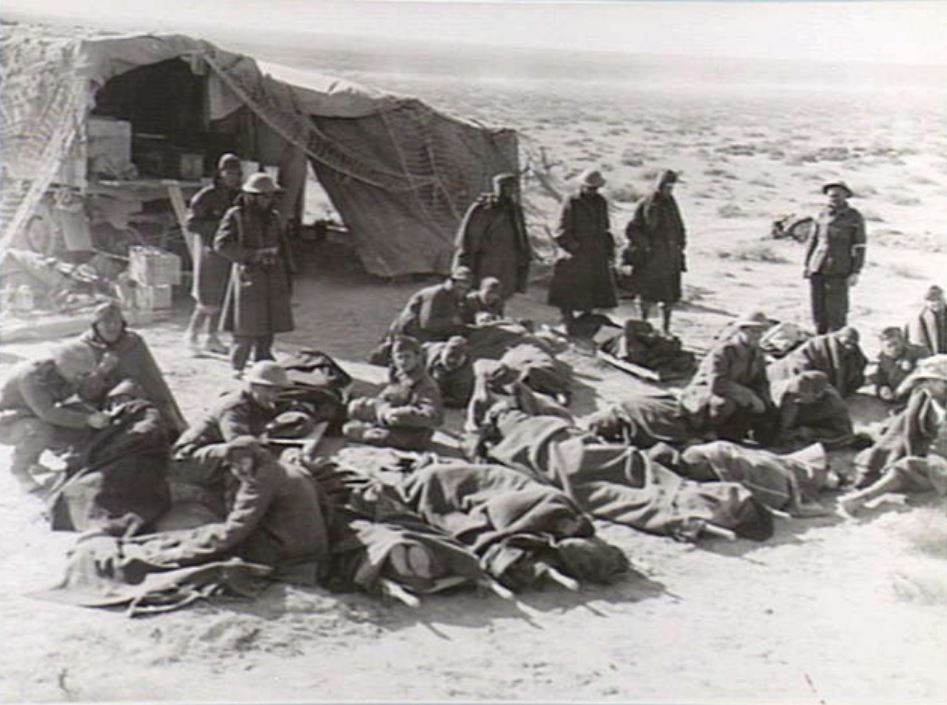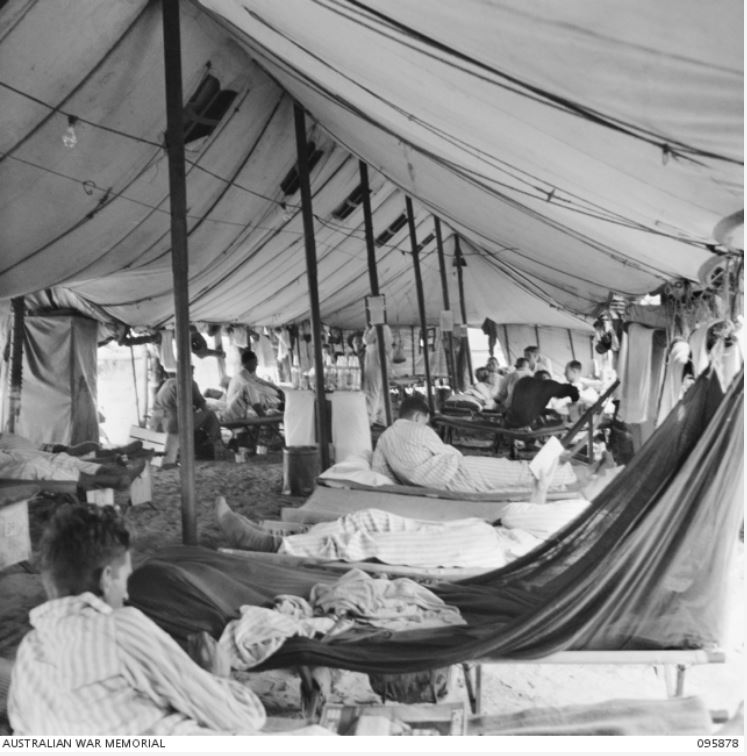Difference between revisions of "2/1st Australian Field Ambulance"
From Our Contribution
| Line 46: | Line 46: | ||
| − | In late 1944 they moved to Aitape in New Guinea to support the troops pushing south to capture Wewak. In January 1945 they were established at Tadji, and moved to Matapau in February, then to But in March, and Karawop in April. Wewak was captured in May and the Field Ambulance established an Advanced Dressing Station at Boram where it was joined by the main unit in June 1945. In July the unit concentrated at Wewak where they remained for the rest of the war. | + | In late 1944 they moved to Aitape in New Guinea to support the troops pushing south to capture Wewak. In January 1945 they were established at Tadji, and moved to Matapau in February, then to But in March, and Karawop in April. Wewak was captured in May and the Field Ambulance established an Advanced Dressing Station at Boram where it was joined by the main unit in June 1945. In July the unit concentrated at Wewak where they remained for the rest of the war. 11 personnel died while posted to this unit: 3 were KIA; 3 died from accidents; 4 from illnerss, and 1 while a POW of the Germans. |
==Staff== | ==Staff== | ||
Revision as of 19:21, 23 November 2022
Contents
General Information
Formed at Ingleburn as part of the creation of the 2nd AIF during November 1939. In January 1940 they embarked for the Middle East, and were established at Qastina in Palestie by February. A series of short term moves to Julis, Helwan (Egypt) and Airiya reflected the rapid movements of units as they prepared for battle in North Africa. Their presence at Bardia and Tobruk supported the troops taking those towns from Italian forces and later they served at Benghazi and Derna before pulling back from the action to prepare for Greece.
At the end of March 1941 they were at Sevia in Greece but soon after were forced to be evacuated to Khalibes in Crete , where at the end of April 1941, 83 men were captured. Those that made good their escape reassembled at Khassa in June and rebuilt the unit. They served in the short war against the Vichy French in Syria. In February 1942 they returned to Hill 69 in Palestine to prepare for their return to Australia.
On the way home, they were detained for a time in Ceylon until appropriate British troops could arrive to provide for its defence. In July 1942 they resumed their journey back to Australia, and after leave assembled at Singleton in NSW. Deployed to New Guinea, they began by servicing the troops in the Port Moresby district before moving to Wondecla in North Queensland in March 1943 to rejoin the 16th Infantry Brigade Group.
In late 1944 they moved to Aitape in New Guinea to support the troops pushing south to capture Wewak. In January 1945 they were established at Tadji, and moved to Matapau in February, then to But in March, and Karawop in April. Wewak was captured in May and the Field Ambulance established an Advanced Dressing Station at Boram where it was joined by the main unit in June 1945. In July the unit concentrated at Wewak where they remained for the rest of the war. 11 personnel died while posted to this unit: 3 were KIA; 3 died from accidents; 4 from illnerss, and 1 while a POW of the Germans.
Staff
Patients
Karawop New Guinea
- Walter Roland Williams 29 Apr 1945
Notes
Content has come from The Unit Guide - Volume 4 - The Australian Army 1939-1945, pages 4.079 & 4.080 - Graham R McKenzie-Smith - Big Sky Publishing - 2018

